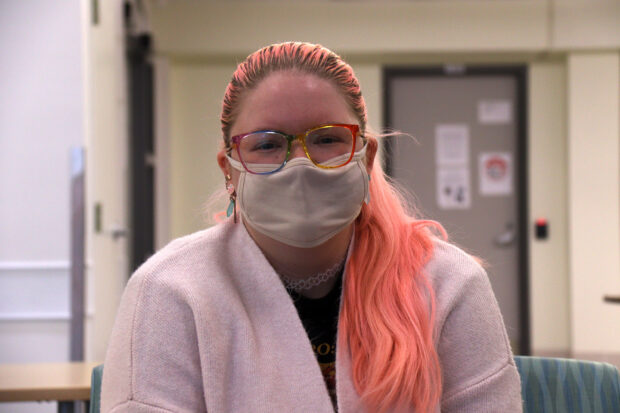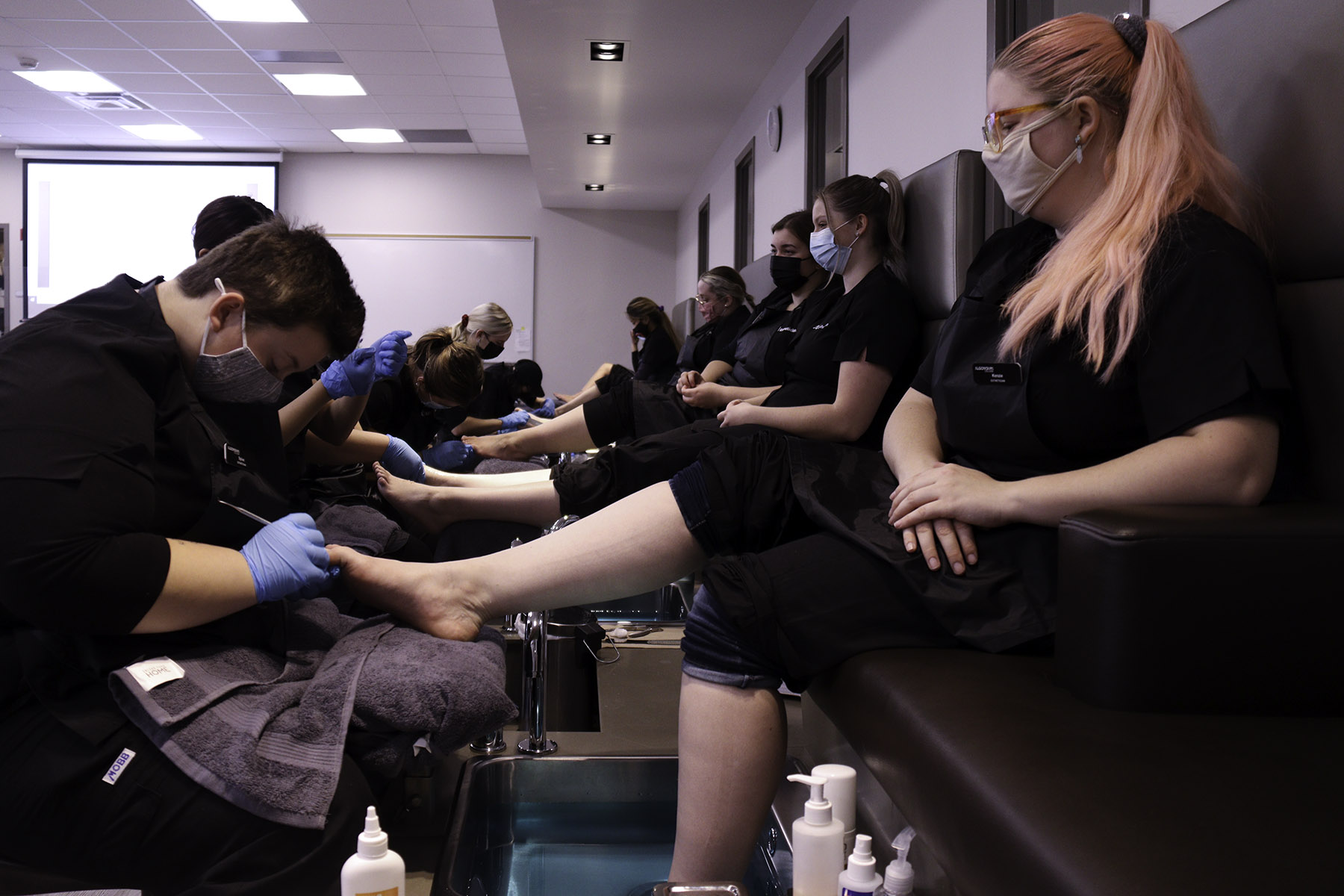While currently spending two days a week on campus for the esthetician program, Mackenzie Lafontaine wonders how her schedule might change in the new year with many programs returning to campus full-time in January.
“I live an hour away and I have to drive in and then I’d have to drive in even more,” said Lafontaine. “It [staying partially remote] is cheaper and you don’t spend as much money on gas and as much money on food like when you’re on the campus.”
Other programs in the faculty of hospitality, tourism and wellness have faced similar changes to hands-on learning during the pandemic lockdowns.
Across the hall in the salon and spa wing of the college, Zoe Davidson, 22, practices cutting, colouring, perms, and more in the hairstyling program. Now in her second and final year of the program at Algonquin, Davidson actually started learning about hairstyling at a private hair school in Ottawa called West End Academy.
Two months into the 10-month program the pandemic hit. Davidson said the school “handled it horribly” and she wasn’t getting the education she needed.
“I dropped out of that and moved to Algonquin because I already had a good experience with it [in the pre-trades program] and I had friends that were going to Algonquin during COVID and they said that it was being treated very seriously and they were doing a very good job at it,” she said.
Deanna Douglas is the program coordinator and a professor in the hairstyling program who has admired her students’ resiliency while facing many challenges in their programs’ delivery.
Throughout the restrictive second wave of the pandemic, the students were only attending in-person labs every other week so the classes could remain at less than half capacity.

During this time, many skills were taught online with students occasionally having to improvise with household objects to replace their tools. Douglas recalls a time when students used a butter knife to imitate straight-razor shaving techniques.
However, the pandemic did have some positive outcomes for the program including higher attendance rates and a successful online hair donation event.
“We used to also host Hair Donation Ottawa in the college every year which is to raise money for CHEO to help kids who have cancer get wigs,” said Douglas. “But even then, they commissioned to do an online event which raised more money than they ever have doing the in-person event because they could just reach more people.”
For now, the programs are unsure if they will remain partially remote, with theory being taught online and labs in-person, or if they will be able to have an entirely on-campus delivery.
“I think that we really do need to sit down and re-evaluate what we could do differently,” said Douglas. “As of this year, it has been so busy and so intense with COVID that we haven’t really looked ahead with those different opportunities for the students.”


